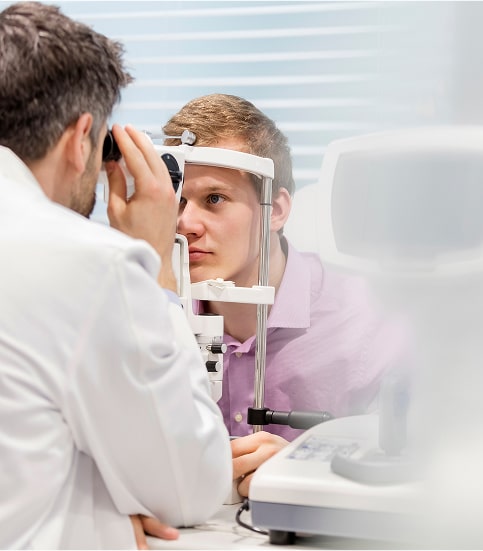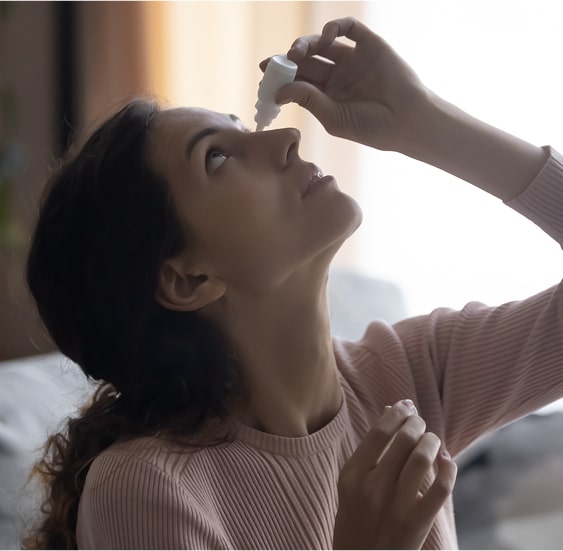Dry Eye
Scratchy, itchy eyes? You could be experiencing dry eye syndrome.
This is a common condition that happens when you don’t produce enough tears or they evaporate too quickly, leaving you without proper lubrication in your eye. Cue discomfort and sometimes vision problems.
Far from being just a minor irritation, dry eye can significantly impact your quality of life. It can make everyday activities like reading, using a computer, or driving uncomfortable. The good news is, that with proper diagnosis and management, you can find relief and protect your long-term eye health.
What Causes Dry Eye?
Several factors can contribute to dry eye syndrome.
Age
A fine wine improves with age – we like to think we do too. Unfortunately, we can’t say the same for our tears. As the years tick by, tear production naturally decreases, making dry eye more common in people over 50.
Environmental factors
Air conditioning or heating that reduces humidity can trigger the issue. The same goes for windy, smoky, or dusty environments.
Health conditions and medications
Autoimmune disorders such as rheumatoid arthritis can make dry eye more likely. Certain medications including antihistamines, decongestants, blood pressure medications, and some antidepressants can too.
Lifestyle
If you wear contact lenses or you’ve recently had laser eye surgery (usually temporary), you’re more likely to develop the condition.
Extended screen time can also play a factor since it reduces blinking frequency.


Recognising The Symptoms
Dry eye symptoms can range from mild to severe. They can include:
- a stinging, burning, or scratchy sensation
- sensitivity to light
- redness in the eyes
- a feeling that something is in your eye
- difficulty wearing contact lenses
- blurred vision or eye fatigue
- difficulty driving at night.
How We Treat Dry Eye
At Broomfield Opticians, we offer comprehensive dry eye assessments that can identify the specific cause of your symptoms. Based on the results, we’ll create a personalised treatment plan.
Artificial tears and lubricants
We can recommend the most suitable eye drops, gels, or ointments based on your specific needs.
Lifestyle and environmental changes
Small changes like reduced usage of heaters and dehumidifiers, taking regular screen breaks, or protecting your eyes from dust can make a big difference.
Nutrition
Omega-3 fatty acids, from foods such as oily fish, walnuts and leafy greens, can help improve tear quality as well as proper hydration. We can discuss simple changes to your diet that may benefit your eye health.






